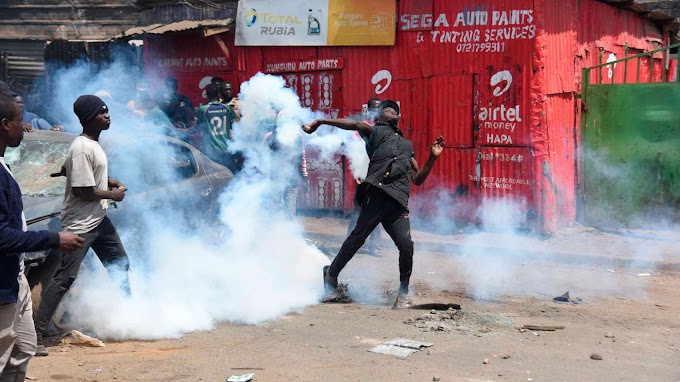The High Court has issued an order to Inspector General Japhet Koome, instructing him to produce Maina Njenga Kamunya and refrain from arresting him, unless he fails to appear in court as directed. This significant ruling was made following a Habeas Corpus application filed by Maina Stephen Njenga, the son of Maina Njenga. The court's decision aims to ensure the protection of individual rights and uphold the principles of justice and fairness.
Preserving the Principle of Habeas Corpus:
The High Court's directive to produce Maina Njenga aligns with the fundamental principle of habeas corpus, which safeguards against unlawful detention and ensures that individuals are brought before a court to determine the legality of their confinement. By issuing this order, the court affirms its commitment to upholding the rights of individuals and ensuring due process within the legal system.
Restraining Arrest, Unless Bail Is Violated:
Justice Diana Mochache's order explicitly states that the police are prohibited from arresting Maina Njenga, unless he fails to comply with the court's instructions to appear. This restriction aims to prevent undue harassment or infringement on Njenga's liberty while ensuring that he fulfills his obligations to the court. The order strikes a balance between maintaining public order and safeguarding individual rights.
Protecting Rights of the Accused:
The court's decision to produce and free Maina Njenga underscores the importance of protecting the rights of the accused. It serves as a reminder that individuals should be treated fairly and justly within the criminal justice system. By emphasizing the need for the police to adhere to the court's instructions, the ruling reaffirms the principles of presumption of innocence and the right to a fair trial.
Compliance with Court Processes:
The High Court's order emphasizes the necessity of individuals' compliance with court processes and directives. Maina Stephen Njenga's Habeas Corpus application sought the production of his father, Maina Njenga, showcasing the importance of adhering to legal procedures and ensuring that individuals are accountable to the court. Non-compliance can have significant consequences, including the possibility of arrest.
Upholding Justice and Fairness:
The court's ruling serves to protect the interests of justice and fairness. By ordering Inspector General Japhet Koome to produce Maina Njenga, the court ensures that the accused has the opportunity to present his case and defend himself before the court. The decision fosters an environment where legal processes are conducted transparently, allowing for a fair and impartial resolution.
The Role of Legal Applications:
Maina Stephen Njenga's Habeas Corpus application played a crucial role in prompting the court's decision to order Maina Njenga's production. Legal applications serve as vital tools for safeguarding individual rights and invoking the jurisdiction of the court. This case demonstrates the effectiveness of legal mechanisms in seeking justice and protecting constitutional rights.
Conclusion:
The High Court's order directing Inspector General Japhet Koome to produce Maina Njenga and restraining arrest, except in the case of bail violation, represents a significant step in upholding individual rights, justice, and fairness. The court's decision reaffirms the importance of adhering to legal processes, protecting the principle of habeas corpus, and ensuring that individuals are afforded the opportunity to present their case. This ruling showcases the commitment of the judiciary to uphold the rule of law and safeguard the rights of individuals within the criminal justice system.

















